Pakistan: Witnessing poor mother and child healthcare in Balochistan
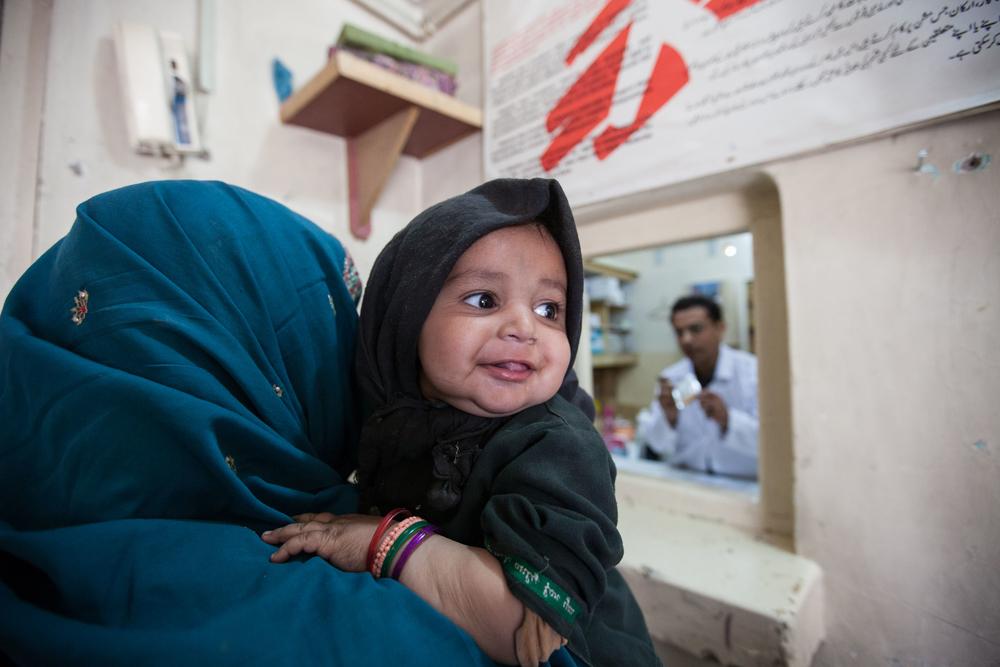
A woman collects medicine from the Doctors Without Borders pharmacy at Doctors Without Borders' mother and child health centre in Kuchlak, Balochistan. Pakistan, 2018. © Khaula Jamil
Doctors Without Borders / Médecins Sans Frontières (MSF) is one of the largest international healthcare providers in the province. Doctors Without Borders provides obstetric and gynaecological care to mothers, and paediatric and newborn care to their children. Our teams treat over 11,000 malnourished children a year across four districts. A lack of knowledge about nutrition, weaning and breastfeeding mean that harmful health practices are an important concern for our medical teams.
Lack of knowledge on treating illness
“Malnutrition is a serious issue that is exacerbated by poor health seeking behaviour, a lack of social protection, extreme poverty, conflict and displacement,” said Tetyana Pylypenko, medical coordinator for Doctors Without Borders in Pakistan. “It must be addressed in a holistic manner that extends beyond Doctors Without Borders' mandate.”
Gulshan's Story
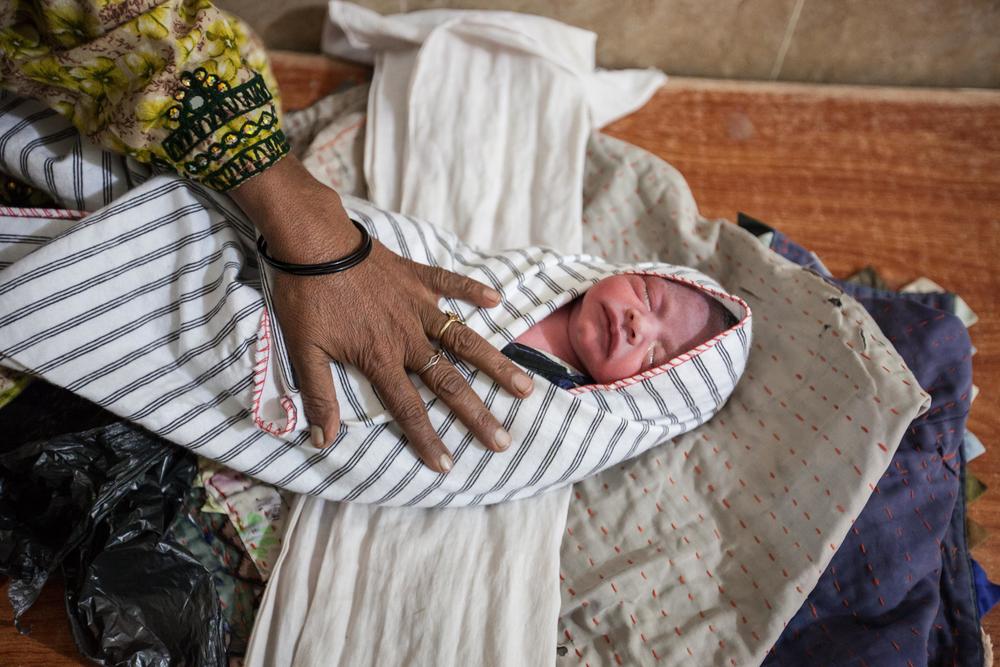
A newborn baby at an Doctors Without Borders facility in Dera Murad Jamali is swaddled by her grandmother before being taken home. Pakistan, 2018. © Khaula Jamil
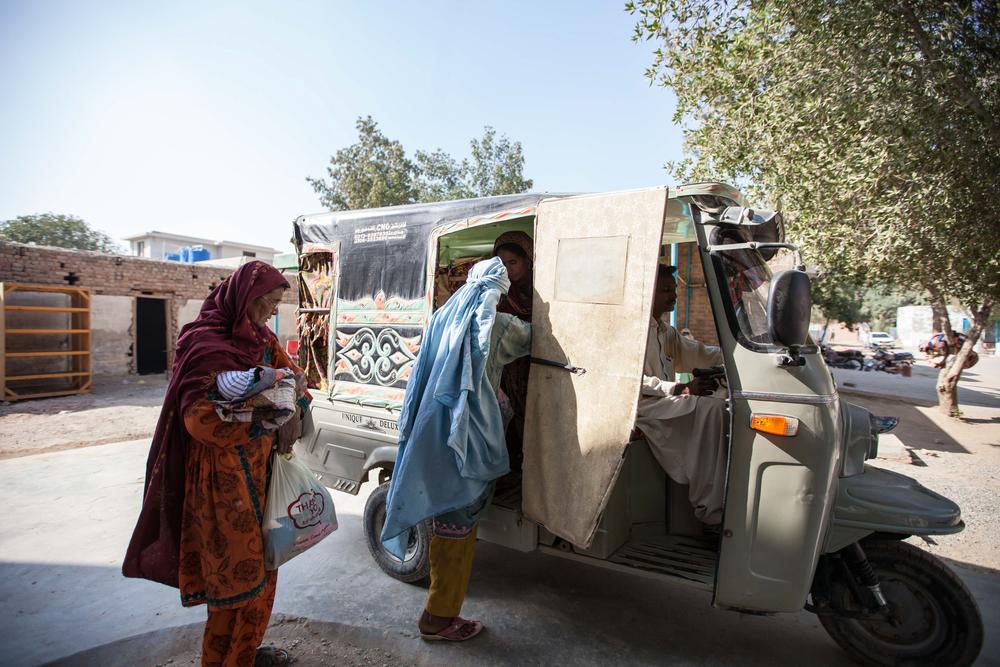
Gulshan, in blue, gets into a waiting rickshaw that her 22-year-old son has hired to take her, his grandmother, aunt and newborn sister home once Gulshan has been discharged from hospital. Pakistan, 2018. © Khaula Jamil
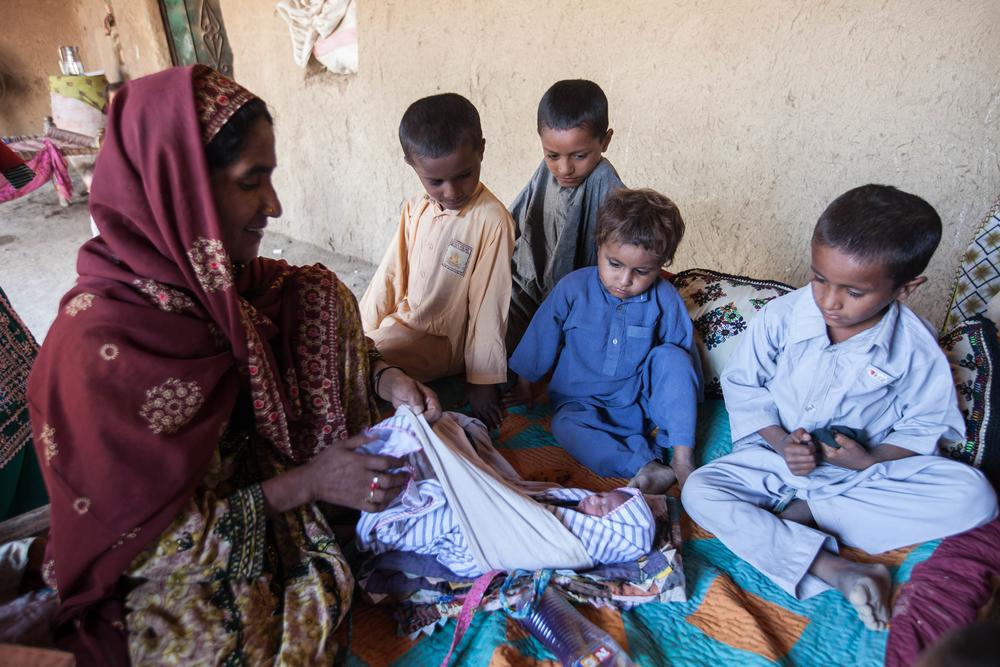
At home, the entire family of nearly 25 people awaits their arrival, where the new baby's aunt introduces her to her brothers and prepares to give her an oil massage, a tradition when a newborn is brought home. Pakistan, 2018. © Khaula Jamil
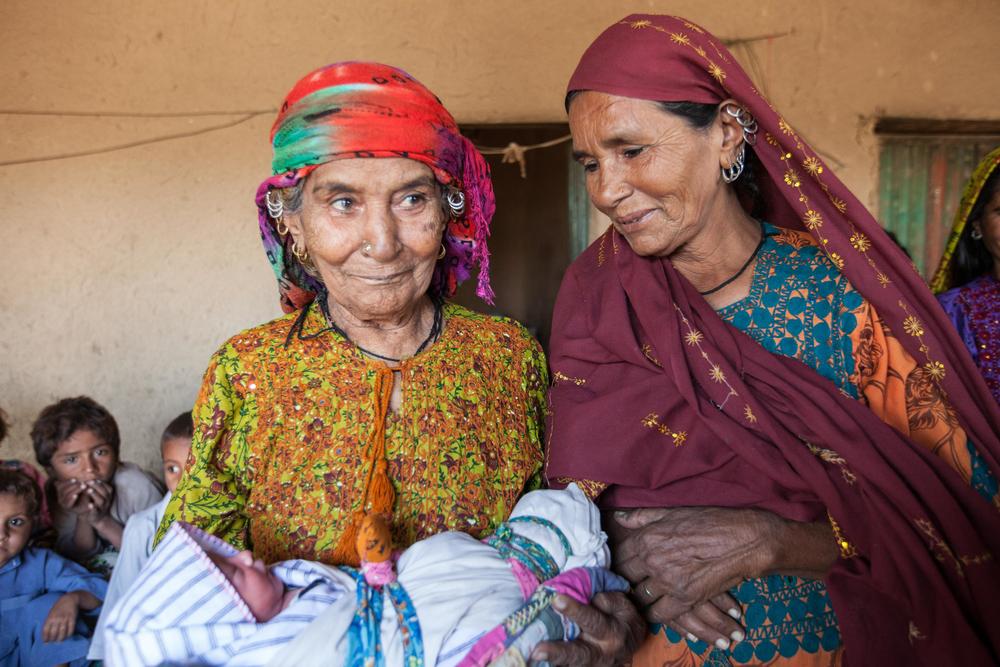
Gulshan’s baby is brought home to doting grandmothers. The family has lots of plans for the baby. Six days after she is born, they will have her ears pierced as per tradition. The Doctors Without Borders health educator explains to Gulshan’s mother and aunt that the baby is too small for such piercings and that she may develop tetanus as a result, which could cause the baby to go into shock. “But it is our tradition which we enjoy following. If the baby has fits then that is God’s will,” says Gulshan’s aunt. Pakistan, 2018. © Khaula Jamil
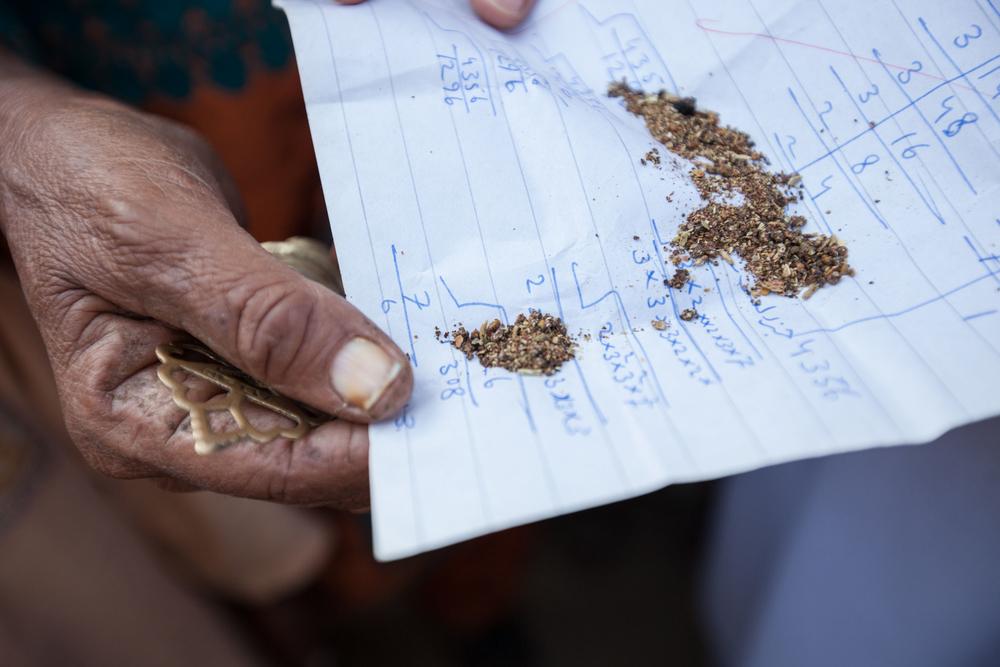
Gulshan’s mother holds mixed herbs. She says that traditionally, this is what they will feed the child, in addition to breast milk, for the first few weeks. According to Gulshan’s mother, this will help the baby with indigestion. Education and knowledge about health is a big gap for people in Naseerbad, and it can be difficult to transform longstanding practices that contribute to poor hygiene, acute malnutrition and harm. Pakistan, 2018. © Khaula Jamil
Health seeking behaviour is how a community uses health services and this can be influenced by the cost of services, distance to health facilities, cultural beliefs, level of health knowledge and inadequate facilities.
Our health promotion and counselling teams work hand-in-hand with medical teams, conducting regular awareness-raising and counselling sessions to educate people about their health and discourage them from following practices that are medically unsafe.
Malnutrition leads to stunting and death, in babies and children
“When I couldn’t feed him, I gave him green tea instead,” says Malaika of her newborn son Arish, who was re-admitted to an Doctors Without Borders medical facility in a critical condition a few days after being born. “My mother-in-law said it was the best thing to do and that’s also what I had done with my other eight children.”
Green tea, black tea and other herbs can be very harmful to newborn babies. However, it is common practice in Naseerabad and Jaffarabad districts to feed them these.
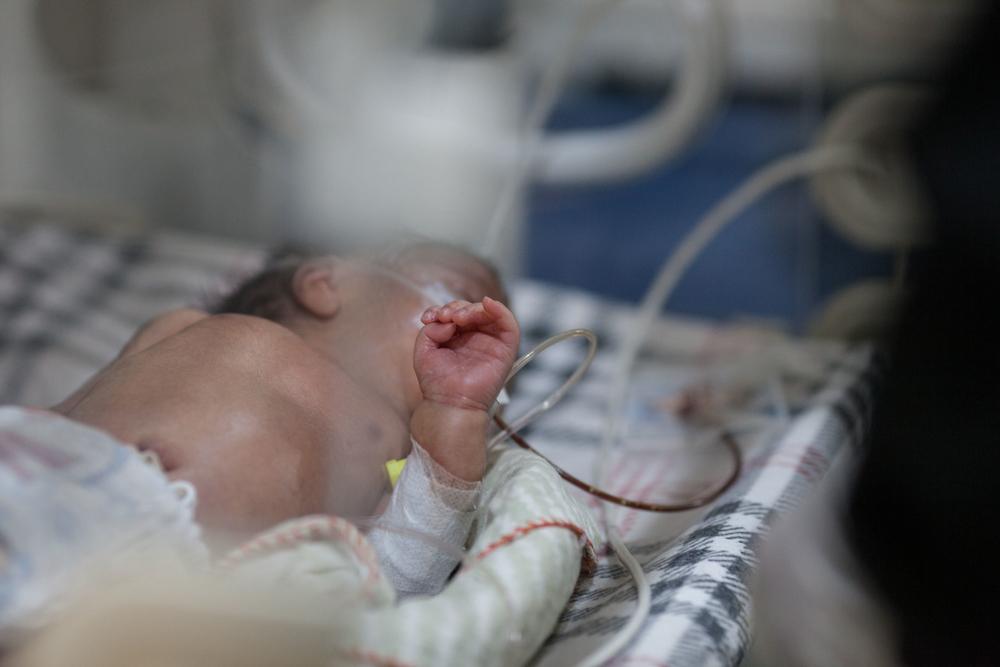
A baby is being treated for infection at the Doctors Without Borders nursery at DHQ Hospital in Chaman, Balochistan. Pakistan, 2018. © Khaula Jamil
When Malaika saw that baby Arish was unwell, she took him to a private clinic. As he continued to deteriorate, Arish was referred to the Doctors Without Borders facility. Unfortunately, Arish arrived in a very critical condition and died.
“Such cases are very common,” says Dr Zialullah. “Black tea and green tea are used as go-to remedies for everything, from burns to cuts, and to feed babies.”
In 2018, rates of malnutrition in Balochistan prompted the provincial authorities to declare a nutritional emergency. Earlier in the year, a National Demographic and Health Survey found that 47 percent of children in Balochistan showed evidence of stunting, a condition resulting from impaired growth and development that children experience as a result of poor nutrition, repeated infection, and inadequate psychosocial stimulation.